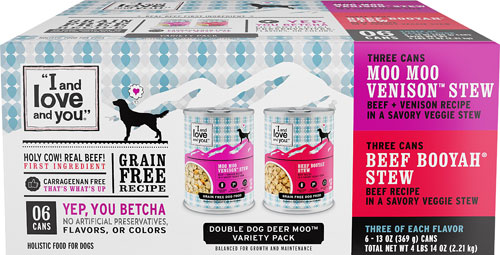February is National Heart Month, a time to celebrate the quiet powerhouse that pumps our blood and literally keeps us alive. As you think of ways to protect your ticker, don't forget to extend that care to your four-legged friends.
Heart disease can be a serious threat to our
dogs and cats, says Dr. Lesa Staubus, rescue veterinarian with American Humane, the country’s first national animal humane organization founded in 1877.
"Just as with people, heart disease (in pets) can lead to suffering and shortened lives," she says.

Dogs and heart health: which types are at risk?
Certain breeds of dogs have genetic tendencies toward heart valve disease, including Cavalier King Charles Spaniels, miniature poodles and several other small dog breeds, Staubus says.
Dilated cardiomyopathy -- a condition where the heart becomes "effectively an enlarged loose bag" --tends to occur in some large breeds, including Doberman pinschers, Great Danes and boxers, she says.
"Mixed breed dogs can also suffer from heart disease, but it is less common," she adds.
Dilated cardiomyopathy also can effect cats. Staubus says taurine deficiency in a cat’s diet can put it at risk for this condition. She notes that cats require the amino acid taurine -- found in high quantities in fish and shellfish -- in their diets, as they are not able to produce it in their bodies.
"The pet food industry responded to this need, and reputable cat foods now provide adequate taurine." Staubus says.
Dogs also need taurine, but can form it from protein sources found in other meats, she says.
Heartworm and heart issues
Heartworm is a major source of heart problems for pets, especially in areas where mosquitoes thrive. While regular preventive medicine easily contains the condition, pets who do not receive such medicines are at risk for severe heart damage.
"Most people think of heartworm disease in dogs, but cats can also be affected by this parasite," Staubus says. "Even a single worm developing inside them can be devastating."
In fact, for many years some cats were misdiagnosed as having asthma, when in fact the lung reaction was due to migrating larva from heartworm.
"Cats and dogs should be protected with regular heartworm prevention medication," Staubus says.
Mistakes to avoid with pet heart health
Unfortunately, some common mistakes can contribute to our pets' heart issues.
Staubus notes that many specialized or “boutique” diets have flooded the market, some without the guidance of veterinary nutritionists in their formulation. "The multitude of pet food choices has become mind-boggling," she says.
Some of these
pet food products do not have the guidance of veterinary nutritionists in their formulation.
In addition, some pet owners now prepare their own homemade diets. But both boutique and homemade foods may exclude crucial nutrients.
"Grain-free diets and diets of exotic protein sources may predispose some pets to taurine-related heart disease," Staubus says.
She says grain-free diets have a high percentage of peas, lentils or other legumes, or potatoes. Grain-free diets are thought to be associated with low taurine levels and heart problems. However, she also acknowledges that experts do not clearly understand how these diets may be undermining pet health.
"Choosing a diet with
veterinary recommendations will help to fit the specific nutritional needs of your pet," Staubus says.
Another mistake is ignoring your pet's oral health.
"Periodontal disease is extremely common in pets once they move into adulthood, and sets them up for valve-related heart disease," Staubus says.
She says the importance of
maintaining your pet's oral health "cannot be overstated."
"If you can see debris and smell a foul odor, your pet needs oral attention," Staubus says.
Many
chew toys are designed to help remove soft tartar as it develops on the teeth.
"Rubbing and scrubbing your pets teeth while they are relaxed can be another form of your happy interaction if done gently and routinely," she adds.
Staubus recommends talking with your veterinarian about
products that can help slow buildup on teeth. In some cases, it may be wise to professionally clean the teeth and help maintain healthy gum tissue.
“The care we give our pets helps keep their hearts healthy, so that they can continue to keep our own hearts happy,” Staubus says.




